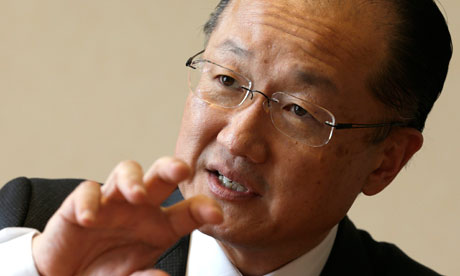Karl Whelan, Contributor
I am an economist covering news on European macro issues.
Follow (46)
I am an economist covering news on European macro issues.
Follow (46)
|
6/05/2013 @ 4:57PM |789 views
IMF On Greece: We Screwed Up But It's Really The Eurozone's Fault
For Euro crisis enthusiasts, today’s IMF review of its Greek program is a real treat. By official standards, the document is thoroughly honest and clear. The report contains two clear messages. Message One: We screwed up. (This is widely accepted outside the IMF but the admission is refreshing all the same.) Message Two: Dealing with the Eurozone countries was impossible and it’s really their fault.[/font]
 Christine Lagarde (Photo credit: Wikipedia)
Christine Lagarde (Photo credit: Wikipedia)
 Christine Lagarde (Photo credit: Wikipedia)
Christine Lagarde (Photo credit: Wikipedia)In relation to Message One, there’s a fair amount of self-flagellation. They knew from the start the debt problem would need a restructuring[/font]
the Fund had misgivings about debt sustainability.
And the report makes clear they violated their usual criteria of only lending where there was “a high probability of public debt being sustainable in the medium term.”[/font]
The fund also admits they underestimated the negative effects of austerity and mis-judged the capacity of the Greek government to deliver quick structural reforms[/font]
the depth of ownership of the program and the capacity to implement structural reforms were overestimated.
If you’ve been following IMF pronouncements in recent years, none of this is too surprising. What is more interesting about the document is Message Two. It is extremely (but fairly) harsh on the role played by the Euro area member states. On the crucial question of should there have been an early debt restructuring, the finger is pointed directly at the Europeans. This section is worth quoting at length.[/font]
Yet in Greece, on the eve of the program, the authorities dismissed debt restructuring as a “red herring” that was off the table for the Greek government and had not been proposed by the Fund (Papaconstantinou, 2010). In fact, debt restructuring had been considered by the parties to the negotiations but had been ruled out by the euro area.
Some Eurozone partners emphasized moral hazard arguments against restructuring. A rescue package for Greece that incorporated debt restructuring would likely have difficulty being approved, as would be necessary, by all the euro area parliaments.
Debt restructuring would directly hurt the balance sheets of Greek banks. This would imply a call on the program’s financing that would exceed the amount set aside for bank recapitalization under the HFSF.
Debt restructuring risked contagion to other members of the Eurozone and potentially another Lehman-type event, yet the EFSF was not yet in place. European banks had large holdings of Greek bonds – but also, and of more concern given the scale of their exposure, had large holdings of the bonds of other European sovereigns that would drop in value were Greek creditors to be bailed in. For the euro zone as a whole, there might be limited gain in bailing in creditors who subsequently might themselves have to be bailed out.
The Europeans are then blamed for fiddling while Athens burned[/font]
the Greek program was also subject to considerable uncertainty as the euro area policy response evolved. For example, the initial euro area position that debt restructuring was off the table was eventually reversed, although this took a considerable length of time. Similarly, there was an extended process before euro partners reached agreement on relaxing the fiscal stance.
Finally, it’s clear that the IMF considered the requirements set down by the EU to have been far too detailed (the document doesn’t use the phrase “micro-managing” but it’s clear this is meant).[/font]
The detailed nature of the structural fiscal conditionality in the Greek program also bears scrutiny given the premium attached to parsimony in Fund conditionality.
And they found it difficult to co-ordinate things with the ECB and the European Commission because[/font]
There was no such clarity in the assignment of responsibilities across the Troika.
Congratulations to the IMF staff on a well-written and clear report. I’ll come back later with more discussion of the lessons learned but for now I encourage everyone to read the report.[/font]




Comment